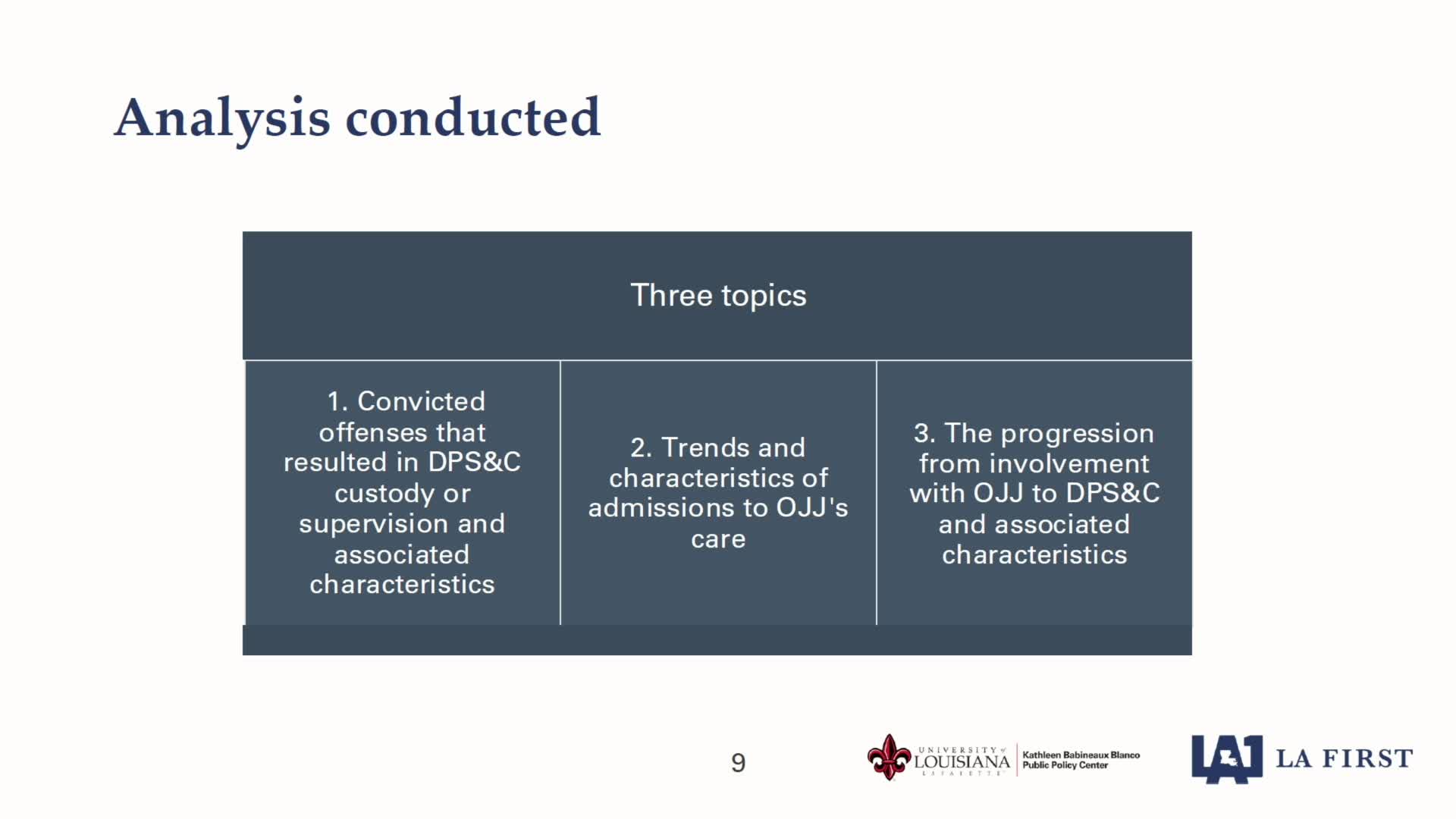Study Reveals 50 Percent of Youth Transition from Juvenile to Adult Corrections
August 08, 2025 | 2025 Legislature LA, Louisiana
Thanks to Scribe from Workplace AI , all articles about Louisiana are free for you to enjoy throughout 2025!

This article was created by AI using a video recording of the meeting. It summarizes the key points discussed, but for full details and context, please refer to the video of the full meeting. Link to Full Meeting
The findings indicated that a substantial 46% of these youth committed offenses leading to adult corrections within one to five years of their release from OJJ, marking this period as particularly crucial for intervention. The analysis also identified specific groups at higher risk for this transition, including those in detention facilities, individuals with severe offenses, and youth with multiple interactions with OJJ. These insights point to the need for targeted strategies to support at-risk youth during their reintegration into society.
Looking ahead, the committee expressed intentions to focus on employment outcomes for both youth and adults involved in the justice system in their upcoming report. This initiative aims to identify characteristics of system involvement that could enhance employment prospects, thereby informing future policy decisions. The integration of data from various sources, including student records and unemployment insurance wage records, will be pivotal in understanding career mobility within Louisiana's economy.
The discussions at this meeting reflect a growing recognition of the complexities surrounding juvenile justice and the importance of addressing the factors that contribute to youth recidivism. As the committee prepares for further analysis, the implications of these findings could lead to more effective interventions and support systems for vulnerable populations in Louisiana.
Converted from House JLCB Aug 8, 2025 meeting on August 08, 2025
Link to Full Meeting
Comments
View full meeting
This article is based on a recent meeting—watch the full video and explore the complete transcript for deeper insights into the discussion.
View full meeting
